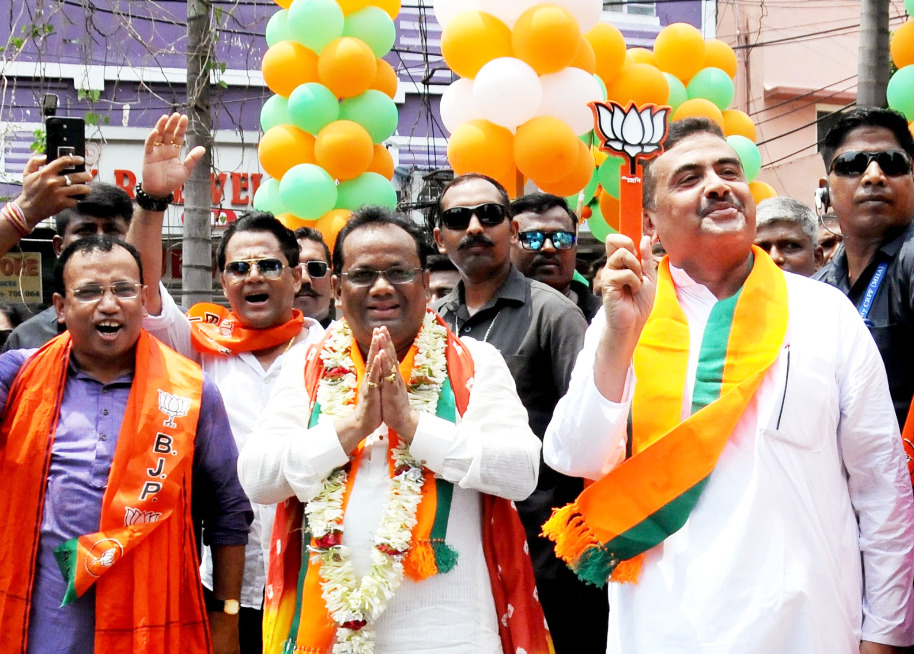NEW DELHI: The party plans to revamp its structure after the electoral loss in the state.
Following its recent poor performance in the Lok Sabha elections in West Bengal, the Bharatiya Janata Party is planning to revamp its organisational structure. Initially aiming to secure at least 25 seats, the party only managed to win 12 out of the 42 parliamentary seats in the state.
This shortfall has led to internal discontent in the party’s state unit. Additionally, the party was unable to replicate its previous success of winning 18 Lok Sabha seats, resulting in the electoral loss of key leaders such as Dilip Ghosh, Nishith Pramanik, S.S. Ahluwalia, and Locket Chatterjee.
After the BJP’s leadership included state unit chief Sukanta Majumdar in the Union Council of Ministers, speculation has intensified regarding who the next state chief will be. With the state Assembly elections scheduled in two years, the BJP faces the challenge of rebuilding trust among the people of Bengal, from scratch.
According to a party insider, the BJP encountered difficulties in establishing itself across the state’s numerous polling booths. He disclosed that the BJP had not managed to deploy “polling agents” or appoint “booth presidents” in 40% of nearly 80,000 polling booths. He attributed the BJP’s recent electoral setback in West Bengal to its “weak” organisational structure.
Speaking on the condition of anonymity to The Sunday Guardian, a state BJP leader revealed that senior BJP leader Dilip Ghosh was emerging as the primary candidate for the position of West Bengal BJP chief. Close behind him is Suvendu Adhikari, who also holds the role of Leader of the Opposition in the state Assembly.
Following them is Jyotirmoy Singh Mahato, who secured a convincing victory in the Purulia Lok Sabha election. However, a significant faction of party leaders suggested that he may not be sufficiently effective as a state unit president.
As the competition intensifies for the role of Bengal’s BJP Chief, a growing faction within the state unit advocates for Ghosh’s reinstatement to the position. He is credited for significantly boosting the BJP’s influence in West Bengal during his tenure as state party president.
Under his leadership, BJP’s vote share surged from a modest 10% to an impressive 39%, and the party expanded its Assembly presence from 3 MLAs to an impressive 77 in the 2021 assembly elections. During the 2019 general elections, under his leadership, BJP secured 18 Lok Sabha seats in West Bengal. His supporters argue that the BJP’s organisational strength and electoral strategy have waned since his departure.

